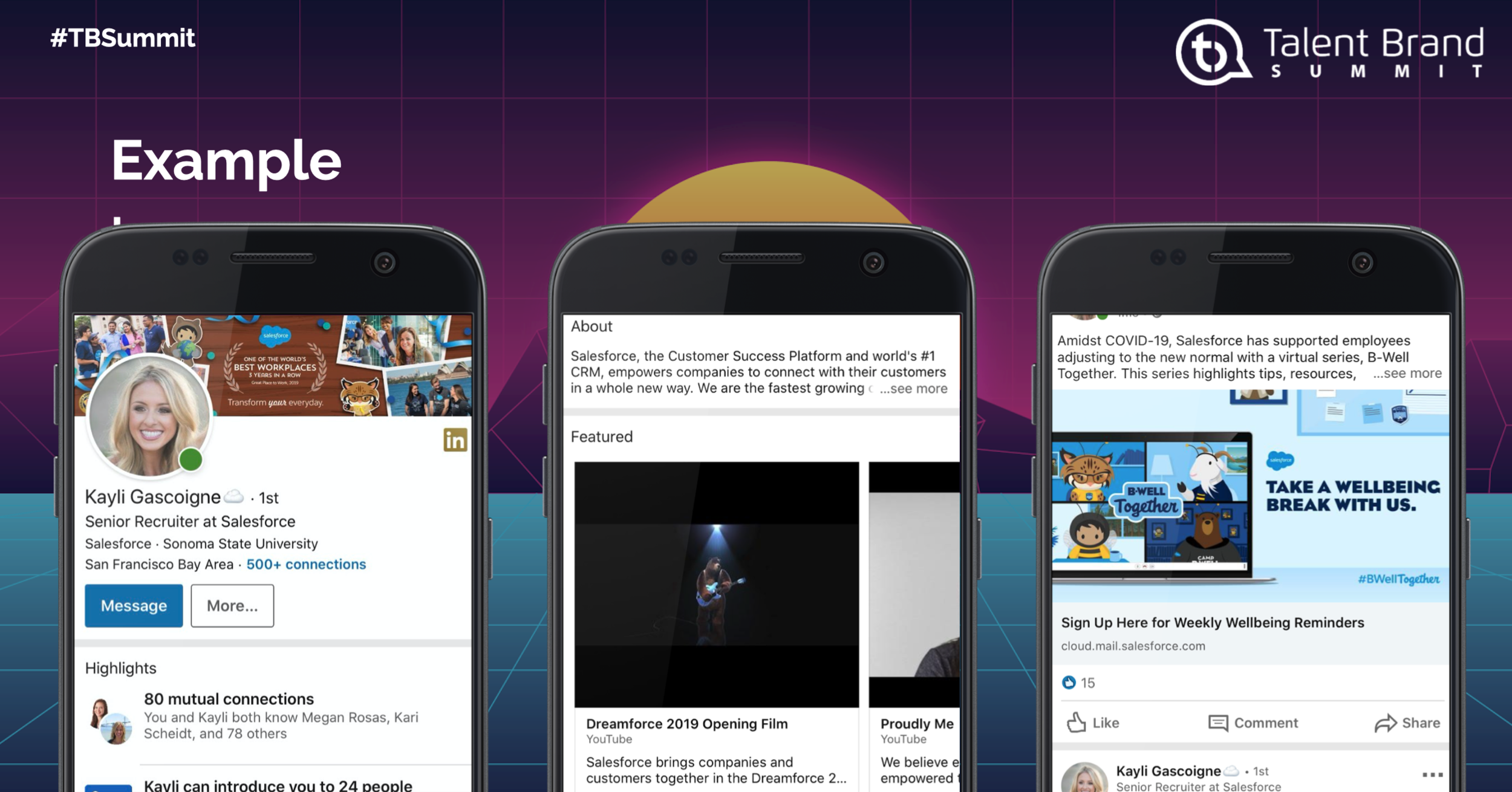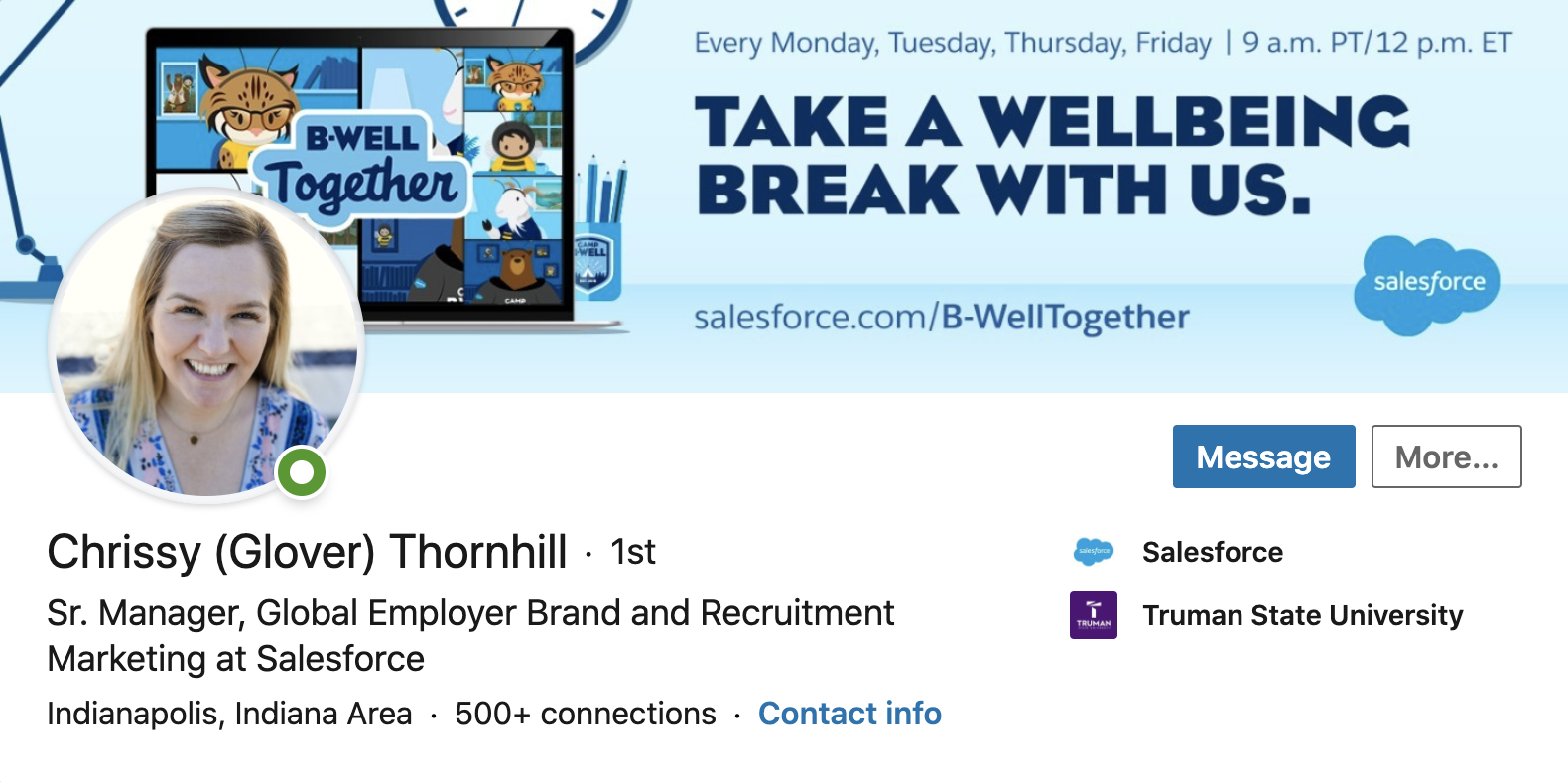Empower your recruiters with content marketing
Picture this. You found the perfect candidate for your open job. They check all the boxes for you, and you’re already picturing the significant impact they will have. The recruiter has contacted this candidate, and you’re hoping to interview them ASAP.
But then you get an email that they are not even interested in applying for the role. What happened?
“A recruiter’s personal brand can make the difference between attracting and losing top talent.” -- Chrissy Thornhill
Though this has always been the case, today there are countless ways for a recruiter to either win hearts with their personal brand–or completely screw up your organization’s ability to attract and engage top talent.
Fifteen years ago, a recruiter’s personal brand consisted of emails, phone calls, and in-person interviews. And that was sort of okay. The “war for talent” wasn’t raging back then like it is today. Recruiters didn’t need to compete nearly as hard for top candidates.
Around ten years ago, opportunities for a recruiter to brand themself and their company has skyrocketed. The emergence of social media and content marketing presents a myriad of touch points between recruiters and potential candidates.
91% of us have had an experience with a recruiter that made us LESS interested in a job opportunity.
-- #TBSummit 2020 Poll
According to Chrissy Thornhill, having a great recruiter brand means candidates are more likely to:
Respond to outreach
Stay in touch for future opportunities
Pass along referrals
Accept an offer
A core responsibility of today’s employer branding professional should be to enable recruiters with high-quality content that answers questions about the company, culture, benefits and more. The content should provide valuable information to people considering joining the company that they can’t get anywhere else.
A compelling employer brand must have compelling content at its core. The content needs to be shared by recruiters to reach the talent you’re hoping to attract and recruit.
A Content Toolkit for Recruiters
Recruiters are often juggling multiple reqs at once and likely don’t have time to curate and create their own content. They aren’t trained in creating content or executing content marketing strategies.
That’s where an employer branding professional comes in.
During #TBSummit we discussed what kind of content provides the most value to people who are considering joining your company. A content toolkit might include:
Videos featuring “a day in the life”, stories about projects, etc.
Corporate Social Responsibility content, stories about how the company gives back
Information on diversity and inclusion efforts, programs, celebrations, etc.
Employee Resource Group (ERG) resources and information
Thought leadership and blog articles written by employees
Geo-specific information, such as links to a community events calendar, information about local culture, what the schools are like, cost of living information, and links to local social media pages and groups. This is especially helpful for candidates who are relocating
Package up candidate-centric content that maps to every stage of the candidate journey. Provide fresh, valuable and timely content to your recruiters.
Empowering Recruiters as Content Marketers
In addition to providing the content that will be most meaningful for your target candidates, it’s also important to help recruiters commit to a weekly cadence for sharing content.
We recommend setting up an editorial calendar for your recruiters. This could be as simple as a Google Doc that you consistently refresh and add to. Alternatively, you can email content to your recruiters on a consistent day/time. If you have the budget, there are a plethora of employee advocacy platforms that might work for your needs.
No matter how you set up your advocacy program, or what technology you use, establishing a thoughtful strategy prior to launching is key. Consider what internal teams and/or stakeholders you could partner with to get this off the ground. Corporate marketing and/or employee communications teams may be ideal people to start with.
During #TBSummit, we conducted a poll to see how many employer branders have created a recruiter enablement program and toolkit. Less than half (43%) of us have created this—but all of us understand its importance. This information-packed session was the inspiration some of us needed to take the next steps—even if we are a team of one, with zero budget!
Providing a “content playbook” empowers every recruiter to leverage content marketing to elevate their personal brand and win the hearts of candidates. And in today’s turbulent, competitive talent landscape, winning hearts has never been more important.
About TBA Member Allison Kruse
Allison Kruse is an Employer Branding & Marketing Lead. Allison Kruse is passionate about elevating the talent acquisition industry and working alongside a global community to solve challenges. She currently serves on the Board of Directors for the Association of Talent Acquisition Professionals (ATAP).
Most recently she was Director of Content and Social Media at Kforce where she was responsible for developing, executing and evolving Kforce’s content, social media, corporate branding and employer branding strategies. She also managed Kforce’s employee advocacy program, as well as creates and guides the overarching social media strategic framework for the firm.
Her background includes sourcing, recruiting, marketing, digital strategy, and social media, and has made an impact in corporate, consulting, RPO and staffing environments. She lives in Lake Bluff, Illinois, with her husband Rich and their dog Pacer.



